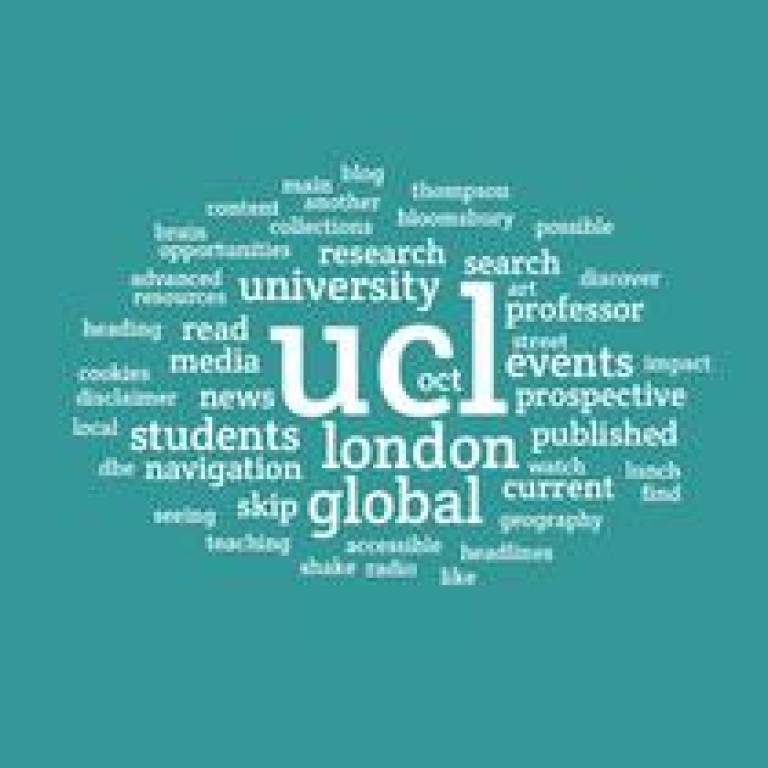UCL Digital Humanities launch text analysis app
2 October 2013
A free smartphone app that allows people to explore the relationships between words in text via an intuitive interface was launched by academics at UCL this week.

Designed by a team from UCL Centre for Digital Humanities (UCLDH) and the Bartlett Centre for Advanced Spatial Analysis (CASA), the app allows the visualisation of any text from politicians' speeches, to academic papers and newspaper articles, enabling people to unearth the themes and hidden uses of language within text through the generation of graphics and statistics.
Professor Melissa Terras, Director of UCLDH, said: "Textal is a fun and useful tool for research and play. We like to think of it as a gateway into digital humanities, providing text analysis in your pocket. It's a public engagement tool, bringing a traditional digital humanities technique to the masses. It also helps explain what we do in digital humanities in a handy, free smartphone app."
Text analysis is a powerful technique that has been around since the very first computers were built, yet is still not very well-known. This is something the team hope will change with the launch of the app.
[Textal is] a public engagement tool, bringing a traditional digital humanities technique to the masses.
Professor Melissa Terras
Steven Gray, research associate at UCL CASA, said: "We've made something that is traditionally digital humanities. Text analysis is a technique that stretches back to the 1950s, so conceptually we've not done something new there, but we're using an increasingly common platform that hopefully will get more people interested in digital humanities.
"We're one of the first apps in digital humanities - certainly the first that allows you to process data - and we think that it broadens the potential for getting people interested in how computing can be used to analyse text, culture, and heritage. But it's much more than that. When we combine Textal with our Big Data research through our Big Data Toolkit we can start to understand how, collectively, we use language through social media " he added.
So far more than 70 million words have gone through Textal since it was made available to the general public, with people using it to analyse everything from speeches and research, to news stories.
Dr Rudolf Ammann, designer and researcher at UCL Centre for Digital Humanities, said: "It's fascinating to see how people are using it and we are just at the start of analysis of who is using this, and for what. Over the next six months or so we'll be gathering data, and doing a reception study to see how it has been received, and by who. So we're still developing behind the scenes and tweaking things, and watching the stats and the uptake".
Professor Terras said: "It's still a bit early to say who our audiences are and what the usage is: in many ways, that's the whole research question! But what we can say is that so far it has been used in six different languages, and in 28 different countries. We'd like to thank our funders, the EPSRC and the National Centre for Research Methods, for encouraging us to play with these tools and techniques in such an exciting public-facing project."
Image 1: Textal wordcloud using the UCL homepage as a source (credit: Textal)
Image 2: Textal app homepage (credit: Textal)
Links:
Textal
UCL Digital Humanities
UCL Bartlett Centre for Advanced Spatial Analysis
 Close
Close

